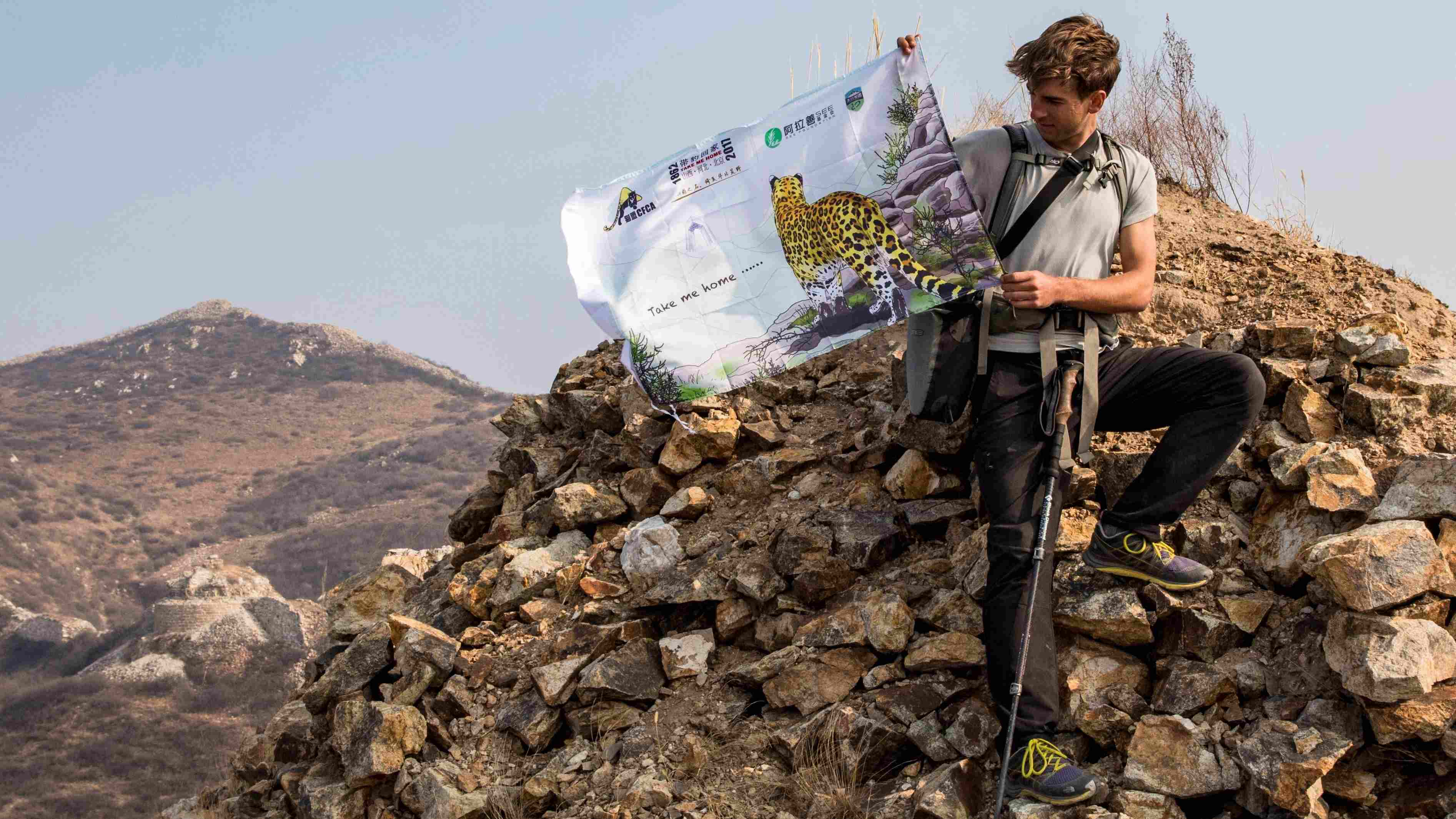
Story
18:47, 16-Feb-2019
He swore never to return to China...now he's a conservationist there
Updated
19:54, 16-Feb-2019
By Zhang Hao

Kyle Obermann broke his promise of never returning to China four years ago. Oddly, he never feels a day of regret about his decision. All the years he has stayed in China allow him to explore so much of what is unexpected, unseen and unknown about this country. He's seen so much more than any search engine or news media can deliver. In fact, it gradually shaped his career path of becoming an environmentalist in China.
During Obermann's first short stay in Beijing in 2013, he ended up with asthma, which took him almost a year to recover from. He blamed smog for the ordeal. When the six-week study ended, it also ended his aspiration to work as an expert of the China-U.S. relationship in the U.S. embassy. That was how the promise he broke later was set.
"The asthma ruined my last year of running in college, and I told myself I will never go back to Beijing," Obermann told CGTN.
A year later, enticed by the opportunity to study Chinese at Peking University, he broke his promise and returned to China – he hasn't left since.

Kyle Obermann poses for a photo on Mount Gongga, southwest China's Sichuan Province. /Photo by Kyle Obermann
Kyle Obermann poses for a photo on Mount Gongga, southwest China's Sichuan Province. /Photo by Kyle Obermann
His understanding of China and the country's environmental protection came solely from Western media and English search engines.
"If you google 'China environment,' the first page of images is all pollution," he said.
"When we read the news from Western media, and we saw the pollution problems, then we assumed that the Chinese government was not supporting (environmental protection) and favoring economic development over environmental protection," he said.
However, after taking part in activities held by local environmental protection NGOs and seeing government officials consult with NGO researchers on tackling environmental issues, he found the Chinese government actively supports any idea that helps reduce pollution.
His preconceived ideas about China crumbled piece by piece as he dove deeper into the country. The trip to Mount Gongga in southwest China's Sichuan Province in 2015 became the first step in knocking open the door for a peek of unknown landscapes.

Kyle Obermann takes part in an animal protection activity on Taihang mountains in north China's Shanxi Province. /Photo by Kyle Obermann
Kyle Obermann takes part in an animal protection activity on Taihang mountains in north China's Shanxi Province. /Photo by Kyle Obermann
"I also posted a lot of pictures on social media. All of the followers and friends couldn't believe that is China. They were so curious. I didn't even think it is China. This is so interesting," said Obermann.
Compared to the landscape of east China, which has shaped much of the world's view of the country due to media exposure, west China looks quite different and remains a mystery, Obermann said. The Great Wall and Guilin are the first images to pop up when "China" is searched in Google. Not much information in English can be found when you try to look for places like Mount Yulong, in southwestern Yunnan Province.
Obermann described his hike on Mount Gongga as "virtually impossible," with no map to read and no visible trail to follow. The only way to get on the right track is to ask local villagers in Chinese. The area's lack of a map system also explains why many places in China are unfamiliar to outsiders unless they are physically present.
Obermann works as a photographer based in Chengdu, capital of Sichuan Province. His footprints have covered provinces like Yunnan, Sichuan and Qinghai. During his explorations, social media is used as his most effective tool to update followers across the world whenever he encounters unusual or breathtaking scenery. By sharing his experience and the landscape, he believes more attention and support will be drawn from the public, and environmental protection will be better understood. He calls this concept "explore to conserve."
Entering another year in China, Obermann shows no signs of leaving any time soon. Instead, he has big plans to create more powerful conservation work by connecting big companies, and their social responsibility, to conservation groups.
"That's a really ideal situation in 2019, hopefully I can work with all conservation groups in China," said Obermann.
(Top image taken by Kyle Obermann.)

SITEMAP
Copyright © 2018 CGTN. Beijing ICP prepared NO.16065310-3
Copyright © 2018 CGTN. Beijing ICP prepared NO.16065310-3